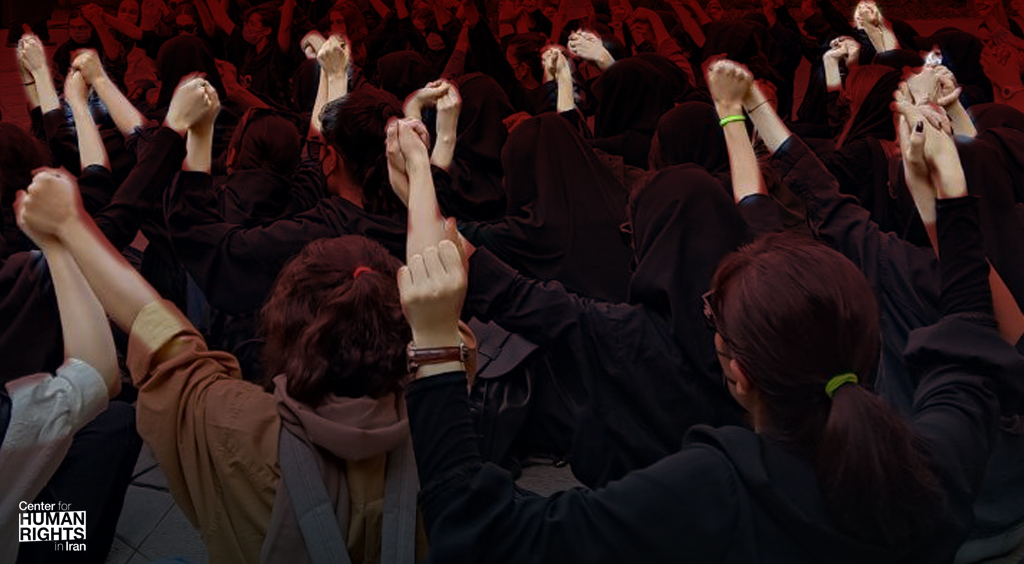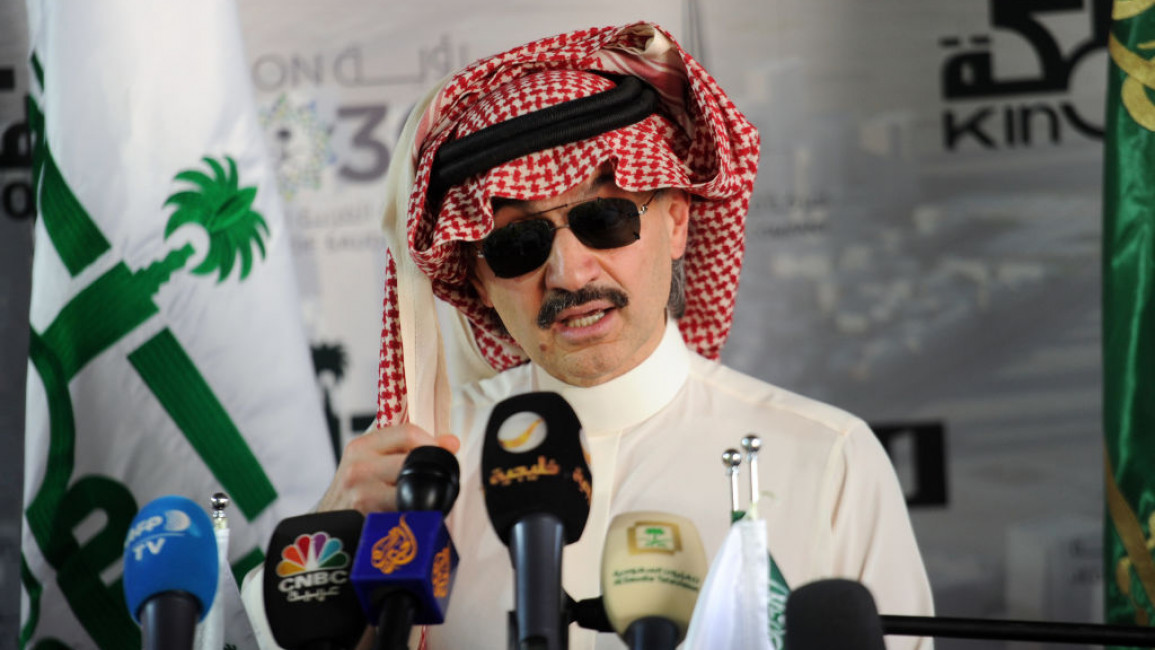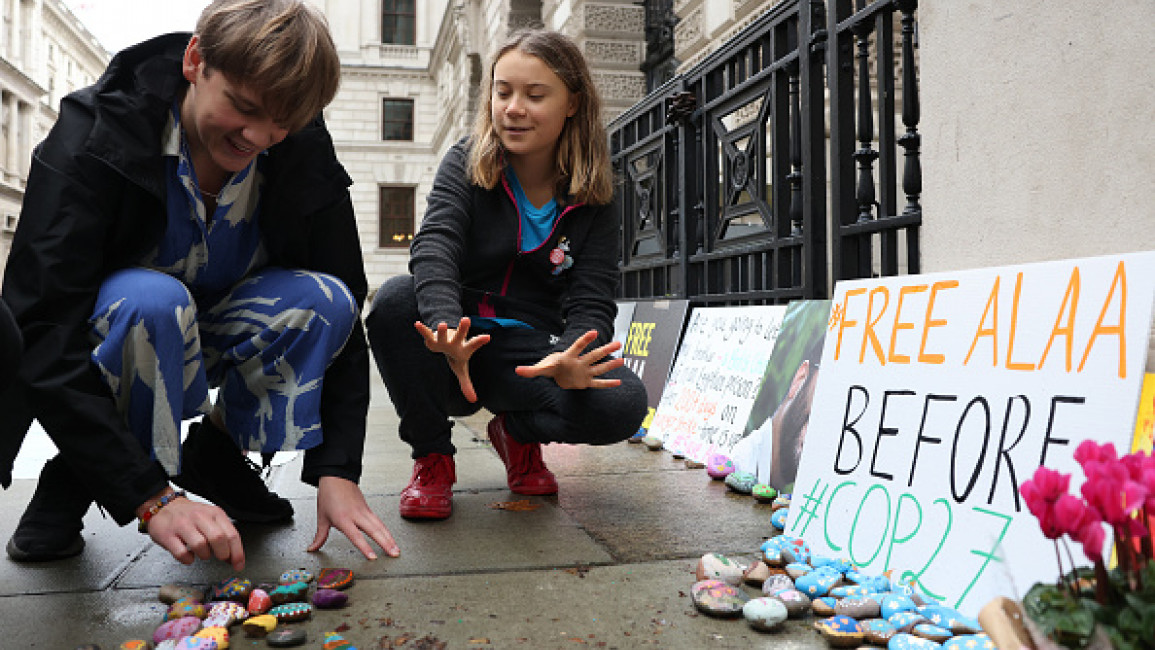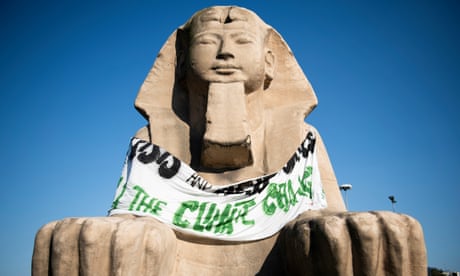Briefing: Addressing State Atrocities Against Protesters in Iran
 Recommendations for the U.S. Government and the International Community
Recommendations for the U.S. Government and the International Community
View a PDF version of this briefing here.
View this briefing’s press release here.
LONG READ
EXECUTIVE SUMMARY
Since the September 16, 2022, killing of 22-year-old Mahsa Amini by Iran’s police for “improper” hijab, Islamic Republic security forces have killed more than 200 individuals—including at least 23 children—and violently arrested thousands of peaceful protesters.[1] Influential members of civil society, who were not participating in the protests, have been rounded up and detained “preventatively.”[2] Lawyers peacefully protesting these arrests have been teargassed and arrested.[3] Dozens of school children participating in peaceful protests have been rounded up and sent to “psychological centers.”[4]
This briefing by the Center for Human Rights in Iran argues that these actions have risen to the level of crimes against humanity by the Islamic Republic and must be urgently addressed by the international community. Condemnations by individual governments and U.N. officials have had no impact and the authorities in Iran have demonstrated both a deepening pattern of lethal suppression of peaceful protest and a complete unwillingness to institute any means of internal accountability.[5] The actions detailed in this briefing, aimed at signaling a significantly strengthened and coordinated international commitment to impose meaningful costs on the Islamic Republic for its continuing abuses, include the following key recommendations:
- The nuclear deal with Iran cannot be isolated from these events and must be put on hold. A significant release of funds for the Islamic Republic will flow from this deal, which will increase the repressive capacity of the state.
- EU and European countries and other governments around the world that have diplomatic relations with the Islamic Republic must forge a forceful, coordinated diplomatic response to the state’s atrocities in Iran, including jointly recalling their ambassadors for consultations and summoning Iran’s ambassadors for censure.
- The U.S. and its partners should pursue the establishment of an urgent special session at the U.N. Human Rights Council (UNHRC) so that governments can collectively address the violence against protesters, and at this session the council should establish an independent mechanism with investigative, reporting, and accountability functions to address the Islamic Republic’s most serious crimes.
- U.N. member states should take action immediately to remove the Islamic Republic of Iran from its current membership in the Commission on the Status of Women, given the Islamic Republic’s ongoing atrocities against women and girls.
- The U.S government and its allies should vigorously pursue an urgent resolution at the U.N. General Assembly condemning in the strongest terms the atrocities committed by the authorities in Iran against peaceful protesters.
- The U.S. and other countries, especially those bordering Iran that are likely to receive Iranian refugees, should provide assistance to Iranians fleeing the Islamic Republic’s persecution, including expediting asylum cases and providing protection for those seeking asylum.
- In light of the continued state-imposed internet shutdowns in Iran aimed at blocking news of the state’s atrocities, the U.S. should provide urgent funding to ensure that companies offer, free of charge, the tools and services Iranians need to communicate with one another and the world.
The Center for Human Rights in Iran has developed these recommendations in close consultation with civil society inside Iran. The Center is in daily touch with protesters, lawyers, activists, labor leaders, journalists, teachers, students, workers, intellectuals and many others across civil society in Iran.
THE ISSUE
Escalating protests throughout Iran are being violently suppressed by the authorities.[6] Hundreds of protesters have been killed by state security forces (including many young women and children), thousands have been violently arrested, and scores of school children participating in protests have been abducted and placed in “psychological centers.”[7] These actions by the Islamic Republic have risen to the level of crimes against humanity. The potential for mass atrocities will increase as the authorities seek to reassert control.
THE CONTEXT
Protests broke out across Iran after the death in state custody of Mahsa Amini on September 16, 2022, three days after her arrest by the Islamic Republic’s morality police for wearing an alleged improper hijab.[8] Initially led by young women rejecting the state policy of forced hijab, the protests have grown to include men and women across socioeconomic and ethnic backgrounds voicing broad rejection of the Islamic Republic’s political order.
Credible evidence has shown Iranian security forces repeatedly, deliberately and indiscriminately firing live ammunition and metal pellets, including birdshot, at protesters, including children, resulting in the known deaths of more than 200 protesters and bystanders, including at least 23 children.[9] Actual numbers are likely to be far higher. Violent arrests and abusive detainment conditions are causing untold numbers of serious injuries.
This is now the second time in recent years that the authorities in Iran have responded to nationwide protests with lethal violence on a mass scale. Several hundred —some credible estimates say over a thousand—civilians and bystanders were killed by state security forces during the November 2019 protests.[10] No state official was ever held accountable for any of those deaths. The current violence against protesters indicates a grave escalation of this pattern of swift, indiscriminate and lethal state violence to crush peaceful protest in Iran.
WHY IT MATTERS
As the authorities in Iran move to squash the protests, the fundamental rights of Iran’s citizenry are being violated and international law is being challenged. Defending the Iranian people and their rights is central not only to American principles but also to U.S. strategic interests that rest on the perpetuation of this rules-based order. Anything less than meaningful and coordinated international opprobrium at this juncture signals that the world is preoccupied with other matters and the authorities in Iran can commit their crimes at will and with impunity. This will encourage further state atrocities inside Iran, and increases the potential for similarly reckless behavior in the Islamic Republic’s external relations.[11] It will encourage tyrants everywhere.
WHAT CAN BE DONE
Coordinated action by the international community that imposes meaningful costs on the Islamic Republic for its crimes and rights violations is imperative; it will signal to the authorities that they will be increasingly penalized and isolated for their continued atrocities. The Islamic Republic has demonstrated resistance to pressure, but it is not impervious. As the Iranian government provides no avenues of accountability for abuses committed by its forces and ignores international condemnations, the world community must act together to impose significantly strengthened diplomatic costs and further isolation in an effort to stem the carnage underway in Iran.
RECOMMENDATIONS FOR THE U.S. GOVERNMENT
I. Suspend nuclear negotiations with Iran
- The nuclear deal with Iran cannot be isolated from the ongoing atrocities being committed by the Iranian authorities, which include the mass killings of peaceful protesters, including women and children. While efforts at nuclear nonproliferation are important, what will flow from this deal is a significant release of funds, in the form of both unfrozen assets and increased oil revenues, which will increase the repressive capacity of the state. Bolstering the capacity of the Islamic Republic at a time when it is trying to crush peaceful public protest with lethal state violence actively assists the government and directly impacts the country’s domestic affairs. As such, the nuclear negotiations should be suspended.
II. Advance an urgent session at the U.N. Human Rights Council
- The U.S. and its partners should establish an urgent special session at the U.N. Human Rights Council (UNHRC) so that governments can address in a coordinated manner and with a collective voice the extreme state violence and crimes against protesters underway in Iran at present. This session should also address Iran’s ongoing human rights crisis, which includes an entrenched pattern of lethal suppression of peaceful protest since November 2019 for which there has been no accountability, and the systemic impunity of state agents who commit numerous and grave human rights violations in the Islamic Republic. In that session, it is imperative that the council establish an independent mechanism with investigative, reporting, and accountability functions to address the most serious crimes under international law and other gross human rights violations committed in Iran, in a manner that meets general standards of admissibility in criminal proceedings, and assist in the investigation and prosecution of those suspected of criminal responsibility.
III. Advance a resolution at the U.N. General Assembly
- The U.S government and its allies and partners around the world, including in Europe, Canada, Japan, Chile, Australia, New Zealand, South Korea, and others, must lead and vigorously pursue a resolution at the U.N. General Assembly (UNGA) condemning the atrocities committed by the authorities in Iran against peaceful protesters, which have now risen to the level of crimes against humanity. Country-level condemnation has had no impact, and there exists no means for accountability inside Iran. Coordinated, forceful international opprobrium is imperative.
IV. Assist those fleeing Islamic Republic persecution
- The U.S. government should provide direct, expedited assistance for those Iranians who are fleeing persecution by the Islamic Republic, including expediting asylum cases and providing effective protection for those seeking asylum.
- The administration should also actively encourage other governments to provide similar assistance regarding assisting refugees, expediting asylum cases and providing protections, especially in countries bordering Iran that are more likely to receive Iranian refugees.
V. Support Iranian civil society
- Build on the U.S. Treasury’s new D2 General License (which exempts an expanded range of online communication tools and services from sanctions) by urging private companies to make these products accessible to Iranians. Without U.S. government encouragement and explicit assurances of permissibility (e.g. public statements, private meetings, letters of comfort, etc.) such sales will not proceed any better than they did under D1.
- Address the difficulties Iranians have in accessing international financial channels to pay for such products by persuading private technology companies to provide these products and services cost-free to the Iranian people, and provide full and expedited U.S. funding for companies that are willing to develop free tools and services for the people of Iran.[12]
- Expand U.S. government funding for Farsi-language news and informational broadcasts.
VI. Public condemnation and sanctions
- Continue to forcefully and publicly condemn, at the highest levels —which would include statements by U.S. President Joe Biden, Secretary of State Anthony Blinken, and National Security Advisor Jake Sullivan—the Iranian government’s violence against the protesters, the use of “preventative” arrests, which have been used to round up and intimidate key civil society actors, the abduction and detainment of school children in “psychological centers,” and the state-imposed disruptions to internet access inside Iran, which are designed to prevent communication amongst protesters and block news of state atrocities from reaching the world, and call for the immediate release of all those detained for participating in the protests.
- Encourage other governments, including not only U.S. allies and partners but also other countries, especially those in the Global South, to not only publicly condemn the Iranian authorities’ crimes, but also to take tangible actions in protest such as recalling their ambassadors from the Islamic Republic and summoning Iran’s ambassadors to issue condemnations and warnings of further isolation if the violence against protesters continues.
- Maintain all individual and institutional human rights sanctions and encourage other governments to impose meaningful human rights sanctions. The administration should also work to further identify and sanction individuals, companies and parastatal organizations associated with rights violations. This includes scrutiny of elite figures in the intelligence and security forces, police, judiciary, prisons, detention centers, and the inner circle of supreme leader Ayatollah Ali Khamenei, as well as the companies they control, the placement of their funds, the individuals they use as asset-owning proxies, and financial holdings they have outside Iran.
RECOMMENDATIONS TO U.N. MEMBER STATES
- EU and European countries that have diplomatic relations with the Islamic Republic must forge a coordinated, forceful diplomatic response to the state’s atrocities in Iran. European countries should jointly recall their ambassadors for consultations, and they should summon Iranian ambassadors to communicate directly their condemnation of the crackdown and a warning that further international isolation will ensue unless the state violence ceases.
- All member states should call for a U.N.-led investigative, reporting, and accountability mechanism on the Islamic Republic’s most serious crimes and human rights violations, including the current crackdown, as well as an urgent special session at the UNHRC to address the Iranian government’s ongoing lethal violence against protesters.
- U.N. member states should take action immediately to remove the Islamic Republic of Iran from its current membership in the Commission on the Status of Women. In light of the Islamic Republic’s ongoing atrocities, especially against women and girls, it has no place in the principal global intergovernmental body dedicated to promoting gender equality and women’s empowerment.
- Governments around the world should at a minimum communicate directly to Iranian ambassadors and other counterparts their unequivocal condemnation of the unlawful violence being used against women and other protesters in Iran, issue forceful public statements (both unilaterally and in joint statements with other governments) condemning the Iranian government’s violent suppression of peaceful protest, and consider recalling their ambassadors from the Islamic Republic and summoning Iran’s ambassadors to issue condemnations and warnings of further isolation if the violence against protesters continues.
- Member states should assist the cases of individuals fleeing the Islamic Republic due to political persecution by the Iranian authorities and provide protection for those seeking asylum.
- Governments around the world should impose and enforce meaningful human rights sanctions against any and all Iranian officials responsible for violence and unlawful activities against protesters and freeze the assets of regime officials who are human rights violators.
CONCLUSION
Without U.S. prioritization of the human rights crisis in Iran, and a significantly strengthened and coordinated international response that imposes meaningful costs on the Iranian authorities for their crimes and abuses, the government of Iran will receive a clear message: global attention is focused elsewhere and the authorities can violate the rights of citizens—and international law—at will and with impunity. The grave violations underway in Iran, which have become increasingly flagrant and reckless, will continue and likely worsen, with all the concomitant risks; a state that kills and abducts children for participating in peaceful protests is one that no longer has any check on its actions, legal, moral or otherwise.
The international community has failed to take meaningful action to address the Islamic Republic’s repeated violence against peaceful protesters and the Iranian authorities have repeatedly ignored the calls of the U.N. secretary general, the U.N. high commissioner for human rights, the U.N. special rapporteurs, the U.N. General Assembly, and multiple governments around the world to cease the unlawful use of excessive and lethal force against protesters and to investigate and prosecute those responsible for unlawful killings and other abuses.[13]
The Islamic Republic has consistently demonstrated it has no intention of instituting any means of accountability for crimes committed by state officials. It is imperative that the U.S. and the international community move beyond isolated statements of condemnation and communicate to the Islamic Republic that its international isolation and pariah status will only increase if the state violence and denial of the Iranian citizenry’s most fundamental rights continues.
The U.N. special rapporteur on the situation of human rights in Iran, Javaid Rehman, put it succinctly, when he noted the “lack of any progress or political will to conduct investigations, let alone ensure accountability” in the Islamic Republic. He stressed that it was “imperative that the international community uses other existing channels… to seek accountability…. [and that] without the involvement of the international community, such grave violations will continue.”[14]
ENDNOTES
[1] “Iran Protests: Death Toll Rises to at Least 201/Children Victims of the Crackdown,” Iran Human Rights, October 12, 2022 https://iranhr.net/en/articles/5517/
[2] “Iran Protests: Scores of Civil Society Members Detained ‘Preventatively’,” Center for Human Rights in Iran, October 6, 2022 https://iranhumanrights.org/2022/10/iran-protests-scores-of-civil-society-members-detained-preventatively/
[3] “Iran Protests: Human Rights Layers Arrested, Teargassed,” Center for Human Rights in Iran, October 12, 2022 https://iranhumanrights.org/2022/10/iran-protests-human-rights-lawyers-arrested-teargassed/
[4] “Iran Protests: Arrests of School Children Prompt Grave Fears of More Child killings,” Center for Human Rights in Iran, October 13, 2022 https://iranhumanrights.org/2022/10/iran-protests-arrests-of-school-children-prompt-grave-fears-of-more-child-killings/
[5] “Iran: Fundamental Legal and Institutional Reform Needed to Curb Impunity, Says UN Expert,” Press release from the U.N. Office of the High Commissioner for Human Rights, March 17, 2022 https://www.ohchr.org/en/press-releases/2022/03/iran-fundamental-legal-and-institutional-reforms-needed-curb-impunity-says
[6] “Students Violently Attacked, Arrested by Security Forces,” Center for Human Rights in Iran October 3, 2022 https://iranhumanrights.org/2022/10/sharif-students-violently-attacked-arrested-by-security-forces-as-protests-in-iran-spread/
[7] “Iran Protests: Sanandaj Becomes Latest Killing Zone Amid Worsening State Violence,” Center for Human Rights in Iran, October 10, 2022 https://iranhumanrights.org/2022/10/iran-protests-sanandaj-becomes-latest-killing-zone-amid-worsening-state-violence/
[8] “Mahsa Amini is Another Victim of the Islamic Republic’s War on Women,” Center for Human Rights in Iran, September 16, 2022 https://iranhumanrights.org/2022/09/mahsa-amini-is-another-victim-of-islamic-republics-war-on-women/
[9] See this video of security forces shooting at a protester from close range in Tehran’s Sa’adat Abad neighborhood, October 8, 2022 (Source: Bazaar Civil Protest channel) https://t.me/Eterazebazar/96757; this video of security forces shooting at protesters in Lahijan, northern Iran, October 12, 2022 (Source: Bazaar Civil Protest channel) https://t.me/Eterazebazar/96757; this video of security forces shooting directly at protesters near Tehran’s Sharif University, October 10, 2022 (Source: Bazaar Civil Protest channel) https://t.me/Eterazebazar/97105; this video of security forces shooting at protesters when someone shouts: “They killed him!” in Divandareh, western Iran, October 4, 2022 (Source: Bazaar Civil Protest channel) https://t.me/Eterazebazar/96396; this video of security forces shooting at protesters in Dehgolan, Kurdistan province, October 1, 2022 (Source: Free Workers Union of Iran) https://t.me/ettehad/105927; and this video of security forces shooting at protesters in Isfahan, central Iran, October 1, 2022 (Source: Free Workers Union of Iran) https://t.me/ettehad/105926
[10] See “They Aimed at My Son’s Head: Report Reveals Carnage in Crushed Iran Protests,” Center for Human Rights in Iran, May 2020 https://iranhumanrights.org/2020/05/they-aimed-at-my-sons-head-report-reveals-carnage-in-crushed-iran-protests/ and “Iran: Details of 321 Deaths in Crackdown on November 2019 Protests,” Amnesty International, updated July 2022 https://www.amnesty.org/en/wp-content/uploads/2022/07/MDE1323082020ENGLISH.pdf and “Special Report: Iran’s leader ordered crackdown on unrest – ‘Do whatever it takes to end it’,” Reuters, December 23, 2019 https://www.reuters.com/article/us-iran-protests-specialreport/special-report-irans-leader-ordered-crackdown-on-unrest-do-whatever-it-takes-to-end-it-idUSKBN1YR0QR
[11] See “Human Rights in Iran and U.S. National Security Interests: A Path Forward for U.S. Foreign Policy Toward the Islamic Republic,” Center for Human Rights in Iran, June 13, 2022 https://iranhumanrights.org/wp-content/uploads/Human-Rights-in-Iran-and-U.S.-Security-Center-for-Human-Rights-in-Iran.pdf and “Prioritizing Human Rights in Iran: A New U.S. Foreign Policy Approach,” Center for Human Rights in Iran https://iranhumanrights.org/wp-content/uploads/US-Iran-Human-Rights-Foreign-Policy-QA-for-Policy-Briefing.pdf and Burke-White, William W., “Human Rights and National Security: The Strategic Correlation” (2004). Faculty Scholarship at Penn Law. 960. https://scholarship.law.upenn.edu/faculty_scholarship/960
[12] Joseph Menn and Yasmeen Abutaleb, “With U.S. Nudges, Google and Others Aim to Help Iranian Protesters,” The Washington Post, October 13, 2022 https://www.washingtonpost.com/technology/2022/10/13/iran-protests-google-jigsaw-vpn/
[13] See “Situation of human rights in the Islamic Republic of Iran Report of the Secretary-General, Report to the Seventy-sixth session of the UN General Assembly,” August 4, 2021 https://documents-dds-ny.un.org/doc/UNDOC/GEN/N21/216/25/PDF/N2121625.pdf?OpenElement; and “Mahsa Amini: Acting UN human rights chief urges impartial probe into death in Iran,” Press release from the U.N. office of the High Commissioner for Human Rights, September 20, 2022 https://www.ohchr.org/en/press-releases/2022/09/mahsa-amini-acting-un-human-rights-chief-urges-impartial-probe-death-iran; and “Iran: UN condemns violent crackdown against hijab protests,” UN News, September 27, 2022 https://news.un.org/en/story/2022/09/1128111; and “UN experts strongly condemn death of Mahsa Amini, ‘victim of Iran’s sustained repression’,” UN News, September 22, 2022 https://news.un.org/en/story/2022/09/1127471; and “Seventy-sixth session Agenda item 74 (c) Promotion and protection of human rights: human rights situations and reports of special rapporteurs and representatives Resolution adopted by the General Assembly on 16 December 2021 [on the report of the Third Committee (A/76/462/Add.3, para. 34)] 76/178, Situation of human rights in the Islamic Republic of Iran” https://documents-dds-ny.un.org/doc/UNDOC/GEN/N21/403/86/PDF/N2140386.pdf?OpenElement
[14] A/HRC/49/75: Situation of human rights in the Islamic Republic of Iran – Report of the Special Rapporteur on the situation of human rights in the Islamic Republic of Iran, Javaid Rehman, Published January 13, 2022 https://www.ohchr.org/en/documents/country-reports/ahrc4975-situation-human-rights-islamic-republic-iran-report-special






.jpg)

